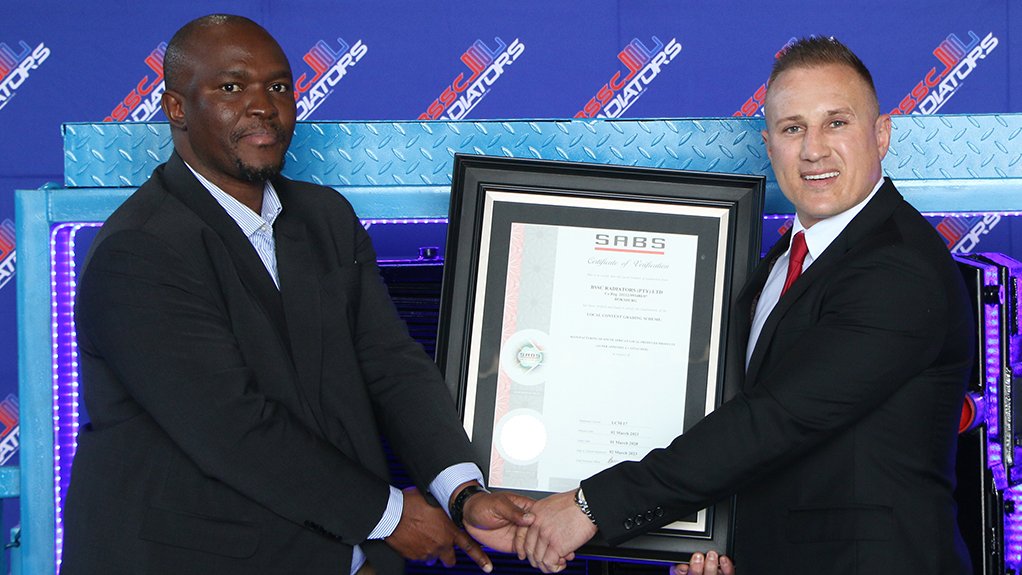BSSC Radiators recently announced that it has become the only radiator manufacturer in South Africa to receive a local content verification certificate from the South African Bureau of Standards (SABS).
The certification shows that the company’s use of local materials and skills is in line with the Department of Trade, Industry and Competition’s (DTIC’s) local content objectives – an important factor for the company’s mining and transportation customers, especially in light of the soon-to-be-promulgated Procurement Bill.
BSSC Radiators director Derek Bennett highlights that the wholly South African company has been active in the local economy for decades and has become a major supplier, with a reputation for quality manufactured goods designed specifically for rugged African conditions.
He notes that the company holds agreements with several mining and construction companies and has entered formal partnerships with a number of original equipment manufacturers for the supply of alternative cooling parts for equipment and trucks.
“Local manufacture is the way to go for most equipment and transport users, offering quicker turnaround times, properly specified materials for local conditions and local support of our products, which is important when running round-the-clock operations such as mines, rail and port infrastructure and trucks,” asserts Bennett.
Tipped to be next-in-line to head BSSC Radiators, Bennett’s son Dillan Bennett says that the company is working closely with its customers and the DTIC to begin exporting its products, while also working to shorten supply chains.
During the certificate handover ceremony SABS chief operations officer Lungelo Ntobongwana explained that the certification underpinned three main pillars in the drive to achieve higher local content targets, namely social upliftment, broader economic expansion and business sustainability.
“Obtaining a local content verification certificate is beyond a compliance issue; it is a business imperative if we are to move the country forward. The certification process aims to provide a tangible measure of a company’s local content and will assist in meeting future procurement targets, as well as directives set out by industries per charter or other requirements,” he said.
“But the benefits for customers go far beyond future legislation to more practical reasons for doing business locally. Shorter supply chains mean better lead times and availability of parts, as well as savings on associated costs. More importantly when dealing locally is that customers are not just numbers but rather foster relationships for better understanding of a customer’s current and future requirements,” added Ntobongwana.
EMAIL THIS ARTICLE SAVE THIS ARTICLE
To subscribe email subscriptions@creamermedia.co.za or click here
To advertise email advertising@creamermedia.co.za or click here













